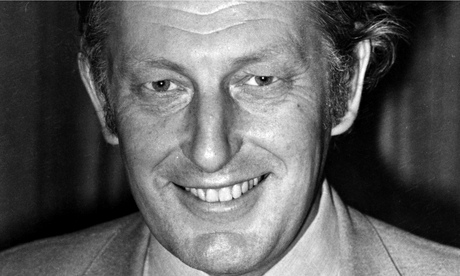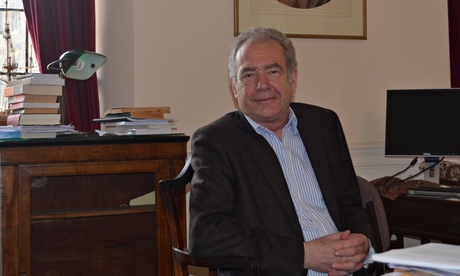Throughout a lifetime of committed public service Christopher Price, who has died aged 83, ran successful parallel careers in politics and in education. When not otherwise occupied he also worked as an energetic campaigning journalist, and from his schooldays pursued the enthusiastic love for the classics he had learned at the family breakfast table. Although he was a Labour MP for a relatively short time and was never a minister, his impact on Westminster politics was considerable and he was widely admired for his principled decency. He had been in declining health in recent years, following a stroke.
A big teddy bear of a man, he was always full of the urgency of his latest idea for making the world a better place. He was uninterested in status, wealth or public recognition. He wanted people to be treated fairly and he wanted children to be taught properly. There are few politicians of whom it can be written that their universal popularity was such that they were without enemies, but he was one of them. “The laughter per square foot would rise immeasurably if he was there,” according to Peter (now Lord) Hennessy, who worked with him in education journalism and appreciated his undaunted spirit and warm-hearted generosity.
Chris was born in Leeds, the second of four children of Stanley Price, a classical academic, and his wife, Kitty, who trained as a health visitor. One brother became a doctor, the other a cleric, and his sister, Helen Jackson, was also a Labour MP. They were taught at home that classical Greece, Plato and a bit of Mesopotamia were what they needed to understand about civilisation, and at Leeds grammar school Chris quickly established the link with politics. He joined the Labour party aged 16, encouraged by a fellow pupil and future MP colleague, Gerald Kaufman, and amused himself at school by translating the Yorkshire Post into Latin and Greek.
He grew up in East Keswick and stayed on in Yorkshire to finish his schooling when his family returned to their native Croydon. During his national service in the army, he was thrown out of the Officer Cadet School for being argumentative and looking scruffy, and two days after completing his tour of duty went to Queen’s College, Oxford, to read classics. He chaired the Oxford University Labour Society and subsequently the National Association of Labour Student Organisations. The lifelong friends he made at Oxford included the journalist Anthony Howard and the tele- vision producer and executive Jeremy Isaacs.
Returning to Yorkshire, Chris became the senior classics teacher at Ecclesfield grammar school. Through student politics he had already met another friend for life in Roy Hattersley, who recalls him arriving late for a student conference, driving a battered Austin 7, wearing his Oxford blazer and waving a bottle of ouzo, and the two men later served together on Sheffield city council. Chris was the deputy chairman of the education committee to the great Albert Ballard, a leading figure in the Co-operative party, and is personally attributed with the abolition of the city’s grammar schools by the end of the 1960s.
He unsuccessfully fought Shipley for Labour in 1964, but won Birmingham Perry Barr in 1966 and was immediately appointed parliamentary private secretary to Anthony Crosland at the education department. He held the seat for only one parliament. Out of the Commons for four years, he worked as an education correspondent for Thames TV and the New Statesman – of which he later became the chairman (1994-95). He returned as an MP in February 1974 for Lewisham West and was appointed again as a PPS (1975-76) to the education secretary, by this time Fred Mulley.
When James Callaghan took over as prime minister from Harold Wilson in 1976, Chris might have expected to join the government, but believed privately that Callaghan failed to promote him because of a chip on his shoulder about Chris having studied classics at Oxford and believing him to be “too clever by half”. Even when he told Callaghan that he got a third class, the prime minister replied: “ Well, anyway, it was in Oxford. It’s all the same for people like you.”
Chris, with typical self-deprecation, had no regrets about his lack of elevation, which he felt also reflected his readiness to speak his mind and his lack of cohesion to either left or right in the then increasingly divided parliamentary party. He greatly enjoyed his delegated membership of the European parliament in 1977-78, before there were direct elections to it, and then chairing the Commons education select committee from 1980 until he lost his seat in the Labour wipeout of 1983.
Rather than seek another seat, he returned to teaching. He was director of Leeds Polytechnic for six years from 1986, overseeing its transition to Leeds Metropolitan University, of which he then became principal (1992-94). He was involved in a huge number of projects and campaigns throughout his life, worked with the National Youth Bureau on drug rehabilitation, was a member of the Arts Council and headed the Commission on the Organisation of the School Year (2000-03), through which he attempted, with limited success, to change the annual school programme into six-term years.
One of his greatest achievements, working initially with the National Council for Civil Liberties, was to secure the re-opening of a 1972 case on the murder of Maxwell Confait and the subsequent release of three innocent men from jail. This led to new legislation on police interrogation methods in cases involving those with a reduced mental capacity and the publication of The Confait Confessions (1977), which Chris co-wrote with Jonathan Caplan. He also campaigned for many years for the return of the Parthenon (Elgin) Marbles to Greece.
While at Oxford, Chris met Annie Grierson Ross, a nurse, and they married in 1956. She survives him, along with their three children, Jenny, Tony and Michael, six grandchildren and one great-grandchild.
• Christopher Price, politician, journalist and educationist, born 26 January 1932; died 21 February 2015











